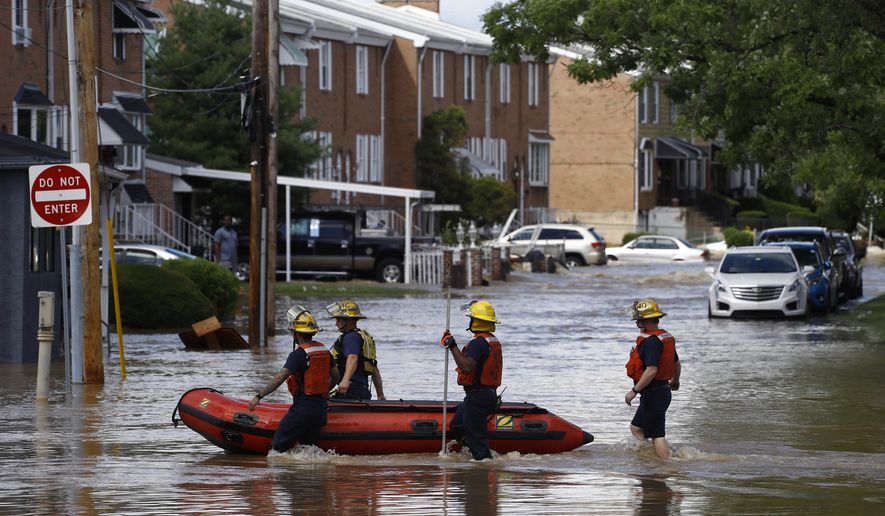Weather forecasters said this year’s Atlantic hurricane season could be one of the busiest on record and predicted another 10 to 16 named storms on Thursday, a day after Tropical Storm Isaias had run up the East Coast, killing at least nine people and leaving millions without power.
Isaias was the ninth named storm of the 2020 season. On average, only two named storms occur by early August, and the ninth usually doesn’t form until October, according to the National Oceanic and Atmospheric Administration (NOAA).
“The data and the upcoming predictions point to this season shaping up to be one of the more active seasons on record,” National Weather Service Director Louis Uccellini said Thursday. “NOAA’s initial hurricane outlook in May indicated a 60% chance of an above normal season … the chance for an above normal season has now been increased to 85%. There’s also a much higher potential for this season to be classified as an extremely active season.”
The season already has set a record with nine named storms. There have been seven tropical storms and two hurricanes this season.
Isaias (pronounced “ee-sah-EE-as) created flooding and destruction along the East Coast as a tropical storm and a hurricane. In Maryland and Virginia, the storm whipped up at least seven tornadoes, killed two people, washed out roads and downed power lines.
NOAA officials forecast that of the 19 to 25 storms predicted this season (including the nine that already have occurred), seven to 11 of those will become hurricanes, with winds of 74 mph or stronger. Three to six of those hurricanes could become major storm systems, with winds of 111 mph or greater. The storm outlook covers the six-month hurricane season, which ends Nov. 30.
An average season has 12 named storms, including six hurricanes of which half can be classified as Category 3, 4 or 5.
The busiest season on record was in 2005, when there were 28 named storms. This is the third active season since then. Hurricane season activity is measured using the Accumulated Cyclone Energy (ACE) Index, which looks at the combined intensity and duration of all named storms during the season.
“This year, we expect more, stronger, and longer-lived storms than average, and our predicted ACE range extends well above NOAA’s threshold for an extremely active season,” Gerry Bell, lead seasonal hurricane forecaster at NOAA’s Climate Prediction Center, said in a press statement.
The chance for a near-normal season is 10% while the likelihood of a below-normal season is only 5% for this year based on the ACE projection.
Warmer-than-average sea surface temperatures in the tropical Atlantic Ocean and Caribbean Sea, reduced vertical wind shear, weaker tropical Atlantic trade winds and a stronger west African monsoon are ingredients that make up an “extremely active” hurricane season.
Isaias killed at least nine people as it struck the East Coast with rain and high winds after landing in North Carolina as a Category 1 hurricane. The National Weather Service confirmed tornadoes in Virginia, Maryland, Delaware and New Jersey. The tropical storm downed trees and more than 2.1 million power outages across multiple states were reported as of Wednesday night, The Associated Press reported, citing data from PowerOutage.US.
Last month, Hurricane Hanna hit the southern coastal region of Texas, becoming the first hurricane of the Atlantic storm season.
As the peak hurricane time approaches, NOAA officials on Thursday urged residents along the coast and inland to prepare for the hurricane season.
People can prepare for hurricanes by signing up for community alerts, making an emergency plan, knowing their evacuation routes, having enough supplies for their household and strengthening their homes by decluttering drains and gutters and bringing in outside furniture.
⦁ This article is based in part on wire service reports.
• Shen Wu Tan can be reached at stan@washingtontimes.com.




Please read our comment policy before commenting.